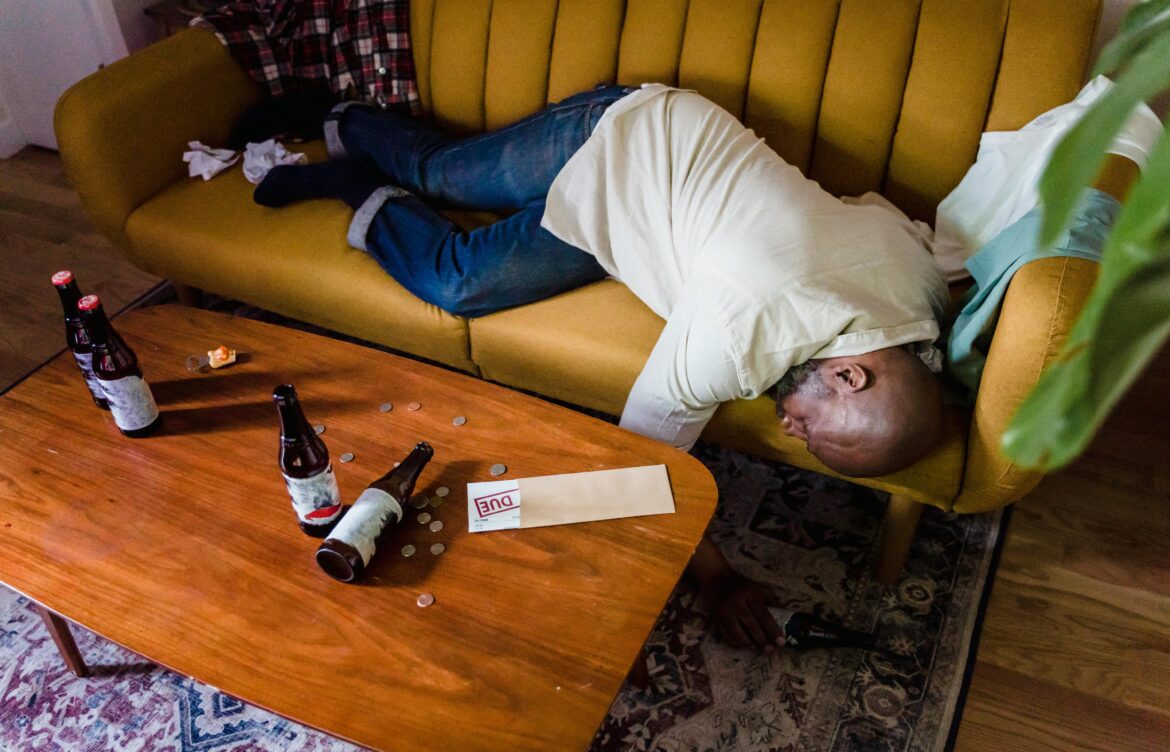
By Muhammad Rauf
The Dangerous Relationship Between Alcohol and Sleep Apnea: What You Need to Know
Alcohol and sleep apnea create a vicious cycle that worsens both conditions. This comprehensive guide examines how alcohol impacts sleep-disordered breathing, why people with apnea are more vulnerable to alcohol’s effects, and science-backed strategies to break this dangerous connection.
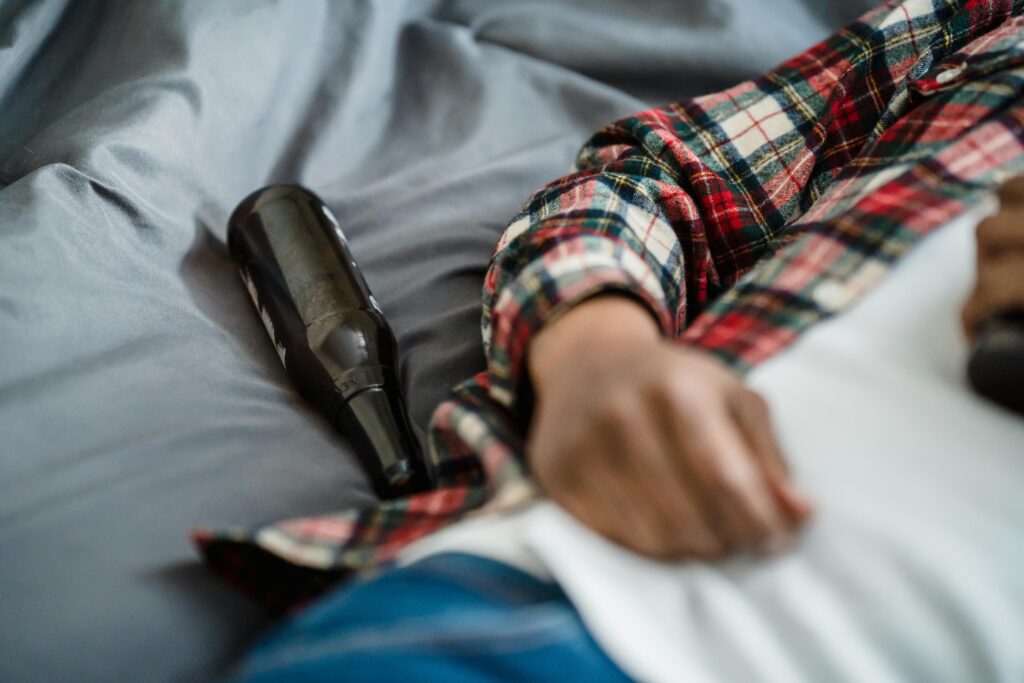
Key Facts About Alcohol and Sleep Apnea
By the Numbers
- Alcohol increases apnea events by 25-50% (Sleep Medicine Reviews, 2023)
- People with OSA are 4x more likely to develop alcohol use disorder (JAMA Otolaryngology, 2024)
- Just 2 drinks before bed can reduce oxygen saturation by 15% in apnea patients
How Alcohol Worsens Sleep Apnea
| Mechanism | Effect | Consequences |
|---|---|---|
| Muscle relaxation | Throat muscles collapse more easily | Longer, more frequent apneas |
| Reduced arousal response | Fails to wake from apnea events | Severe oxygen desaturation |
| Increased nasal congestion | Forces mouth breathing | Worse airway obstruction |
| Disrupted sleep architecture | Suppresses REM sleep | Poor sleep quality despite longer duration |
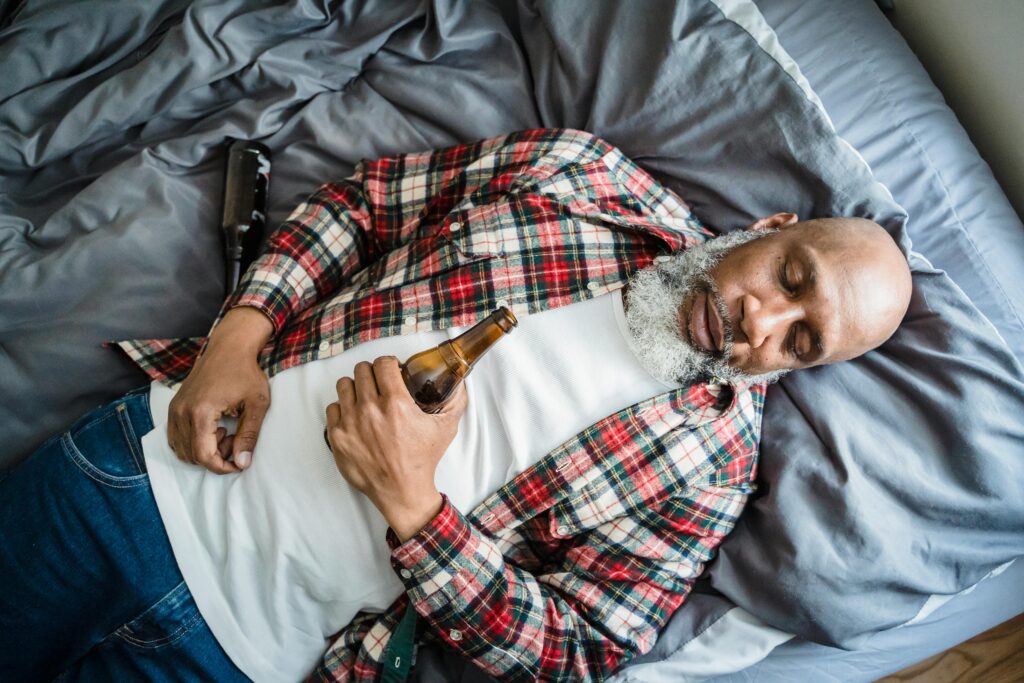
The Two-Way Street: How Sleep Apnea Increases Alcohol Risks
1. Self-Medication Trap
- 42% of undiagnosed apnea patients use alcohol as a sleep aid (Sleep Health Journal)
- Alcohol’s sedative effects mask daytime fatigue symptoms
2. Metabolic Consequences
- Apnea-induced hypoxia increases alcohol cravings
- Shared risk factors (obesity, inflammation) amplify both conditions
3. Medication Interactions
- OSA patients taking sedatives with alcohol have 8x higher risk of respiratory depression
Alcohol’s Impact on Sleep Architecture in Apnea Patients
Polysomnography Findings:
- REM suppression: Loss of critical restorative sleep
- Arousal threshold elevation: Dangerously prolonged apnea events
- Oxygen nadir reduction: SpO2 drops 5-10% lower than sober sleep
Table: Effects by Drink Quantity (160lb Male)
| Drinks | Apnea Events/Hour | Lowest SpO2 | REM % |
|---|---|---|---|
| 0 | 18 | 88% | 22 |
| 2 | 27 | 82% | 14 |
| 4 | 39 | 76% | 8 |
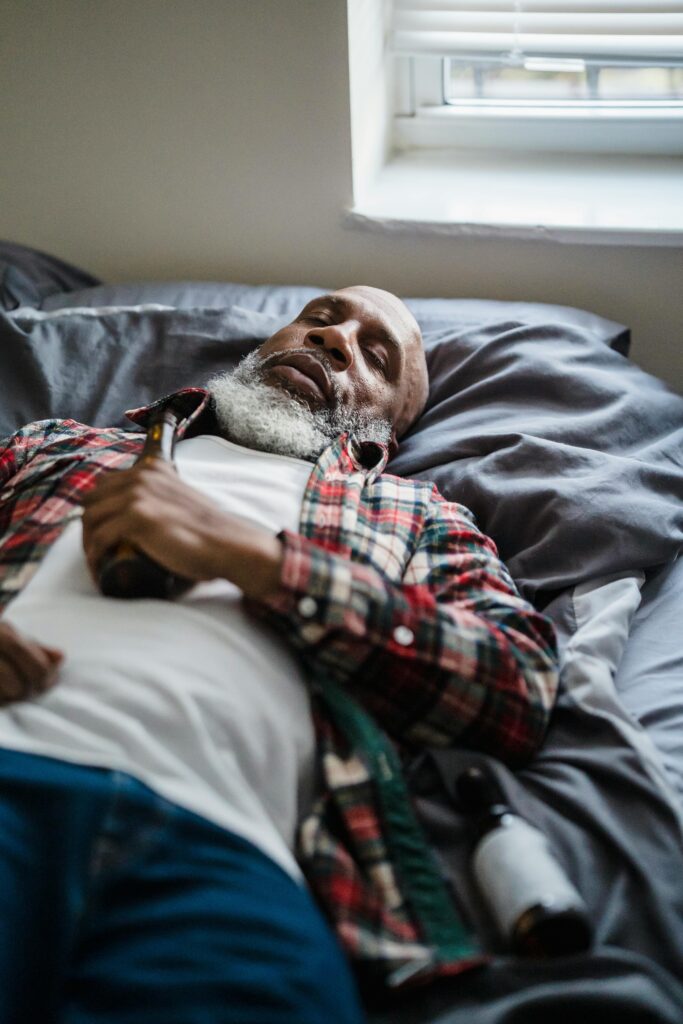
Special Populations at Highest Risk
1. Postmenopausal Women
- Hormonal changes + alcohol = 3x greater apnea exacerbation
2. Asian Descent Individuals
- ALDH2 deficiency increases both apnea and alcohol sensitivity
3. CPAP Users
- Alcohol reduces CPAP compliance by 35% (mask discomfort, forgetfulness)
Harm Reduction Strategies
If You Choose to Drink:
- Time it right: Stop 4+ hours before bed
- Hydrate aggressively: 1 glass water per alcoholic drink
- Elevate head position: 30° incline reduces airway collapse
- Avoid sedatives: Including sleep aids and antihistamines
For CPAP Users:
- Use alcohol-resistant mask cushions (silicone vs gel)
- Enable humidifier to combat dehydration
- Set reminder to wear device after drinking
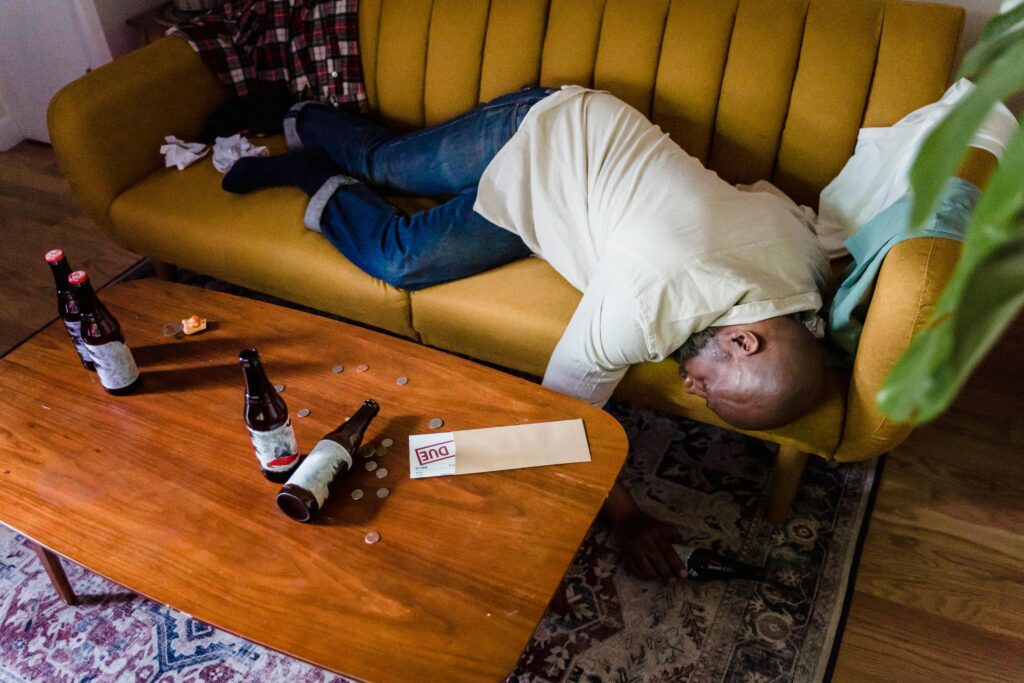
Treatment Approaches for Co-Occurring Conditions
1. Medical Interventions
- Gabapentin: Reduces alcohol cravings without respiratory depression
- Therapeutic CPAP: 70% reduction in alcohol dependency when apnea treated
2. Behavioral Therapies
- CBT-I: Improves sleep without alcohol reliance
- Motivational Interviewing: Addresses drinking motivations
3. Support Groups
- SMART Recovery: Science-based addiction program
- Apnea support networks: Shared experience coping
FAQs
1. Can I have an occasional drink with sleep apnea?
Limit to 1 drink before 6pm, with food, and extra hydration. Monitor oximetry if possible.
2. Does alcohol make CPAP less effective?
Yes – increases leaks, reduces compliance, and requires higher pressures.
3. Which alcoholic drinks are worst for apnea?
Dark liquors (higher congeners) and carbonated mixers (bloating) have strongest effects.
4. How long after quitting drinking does sleep improve?
- 3 days: REM rebound begins
- 2 weeks: Apnea events reduce by 20%
- 3 months: Equivalent to 5% weight loss benefit
5. Can treating apnea reduce alcohol cravings?
Yes – 68% report decreased desire to self-medicate with proper OSA treatment.
Action Plan: Breaking the Cycle
- Get screened if you snore and drink alcohol regularly
- Track habits (alcohol intake vs. sleep quality)
- Experiment with 30-day alcohol-free trial
- Optimize treatment (CPAP adjustments, positional therapy)
- Seek support (sleep specialist + addiction counselor if needed)
